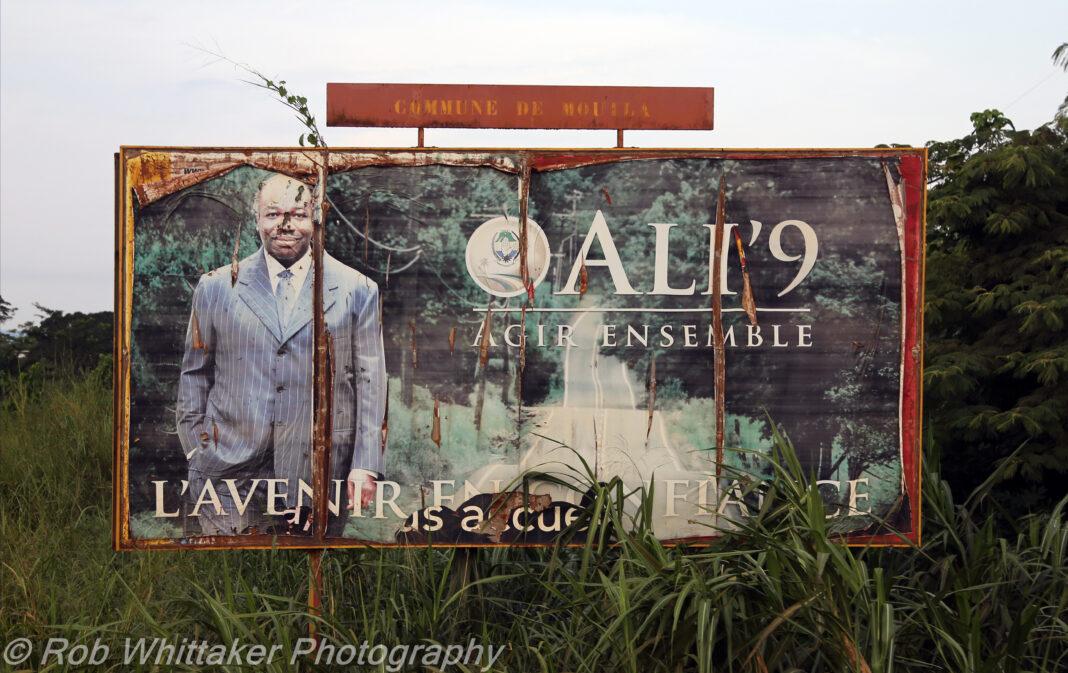by Ambra Visentin
Another French stronghold in Africa has fallen, but this time terrorism has nothing to do with it. On Tuesday evening, when the results of Saturday’s elections were announced on the Gabon 24 television channel, the Gambian coup plotters appeared on screen and announced “the end of the current regime” of Ali Bongo Ondimba. On Wednesday, the soldiers installed a new leader: “General Brice Oligui Nguema was unanimously appointed president of the Committee for Transition and Restoration of Institutions [CTRI], president of the transition”.
On Tuesday evening, Bongo’s main rival, Albert Ondo Ossa, who officially won only 30.77% of the vote, but who according to some sources quoted by Le Monde actually won around 70%, denounced “fraud orchestrated by the Bongo camp”. The Gabonese president was seeking a third term in office to continue his family’s more than 50 years of rule in the country, which despite its oil wealth has a largely impoverished population. Ali Bongo took over in 2009 from his father, Omar Bongo, who ruled from 1967 until his death.
The family has long been accused of corruption. They are said to be one of the richest families in the world, owning a private fleet of planes, several luxury cars and, according to NGO Transparency International, dozens of residences in France worth many millions of euros. Gabon is one of the most corrupt countries in the world, according to Transparency International. In 2008, the group accused Bongo of embezzling state oil revenues into private accounts in France. But the investigation ended inconclusively.
Nguema was the last aide-de-camp of Omar Bongo Ondimba, the deposed president’s father, and commander-in-chief of the Republican Guard, a unit whose main mission is to ensure the president’s security. Since taking office in 2020, Nguema has recruited several hundred men and received better equipment.
The military justified the coup by citing an ‘irresponsible and unpredictable government’ that had led to a “constant deterioration in social cohesion” that threatened to plunge the country into chaos. They claimed to speak on behalf of the Committee for Transition and Restoration of Institutions. Former President Bongo is under house arrest with his family and doctors, according to the coup leaders. According to a source quoted by the French newspaper, Gabon’s new ruler has been at odds for several months with the deposed leader’s highly influential wife, Sylvia, and their son, Noereddin Bongo Valentin, whose power has grown since the days of Ali Bongo Ondimba. Valentin has been arrested and he and six other government officials are being investigated for high treason, massive embezzlement of public funds and drug trafficking.
The French government has condemned the ongoing military coup in the central African country of Gabon. France reiterates its hope that the results of last weekend’s elections in Gabon “can be respected as soon as they are known, government spokesman Olivier Véran said in Paris on Wednesday. The Libreville coup takes place in a different context from that of the Sahel countries. Unlike the latter, Gabon is in no way threatened by jihadists, and the French soldiers stationed there are not involved on the ground. Between French President Emmanuel Macron’s promises to launch a “new software” for Africa, to stop posing as a “saviour”, and his orders and bloodshed, the contradictory messages are fuelling his isolation within the Western camp itself. Faced with political developments of the magnitude of what is happening in Gabon and the strong desire of that country to take its destiny into its own hands, France should perhaps adopt a position of neutrality and begin to adopt an attitude of genuine partnership, perhaps with a military withdrawal.
Russia also expressed ‘deep concern’ over the coup in Gabon. Kremlin spokesman Dmitry Peskov said in Moscow that Russia was “closely following events”.
Cover image: Rob Whittaker on Flickr
























